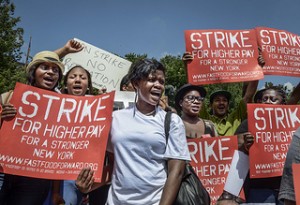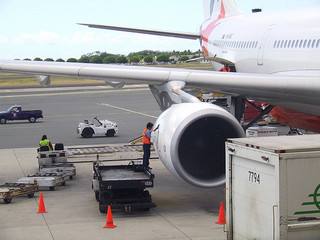Implications of a $15 Minimum Wage

Fast food workers around the nation are lobbying for an increased minimum wage. They are proposing $15 per hour because that’s what it takes to support the cost of living in many of the larger cities around the world. Los Angeles, St. Louis, and New York are leading the fight. It’s a controversial subject, and something that would definitely change the way that fast food chains approach their supply chain and overall operations. A higher minimum wage could even put many fast food establishments out of business.
This article is for Premium Members only. Please login below to read the rest of this article.
Not a Premium Member yet? Become one today.
[login_form redirect=’https://www.procurementbulletin.com/implications-of-a-15-minimum-wage’]
[show_to accesslevel=’Premium Members’]
Hillary Clinton supports the minimum wage initiative, acknowledging the need for better wages in all industries across the nation. At a national Fight For 15 movement in Detroit, Hillary Clinton showed her support by rallying people over the phone. She told the crowd, “We need more cities and states to follow the lead of Los Angeles, St. Louis, and New York… We need you out there leading the fight against those who would rip away Americans’ right to organize, to collective bargaining.”
If the $15 minimum wage does get approved, fast food chains are going to have to look for ways to cut costs. This could mean changing their suppliers and overhauling their supply chains. It’s also likely that many fast food jobs would be eliminated and companies would push for more process automation. The smaller fast food establishments might not be able to support the higher minimum wage and end up going out of business.
A higher minimum wage is something that the U.S. government is going to have to carefully consider before it is approved. It would make workers happy, but have a lot of other side effects that could hurt the economy or cause inflation. It would definitely throw supply chains out of balance.
[/show_to]





